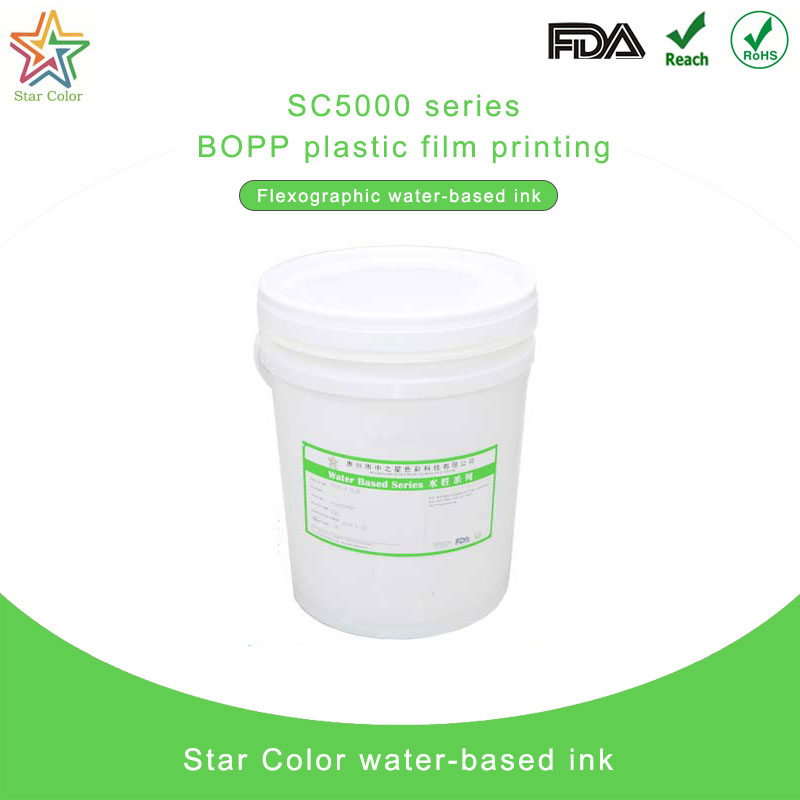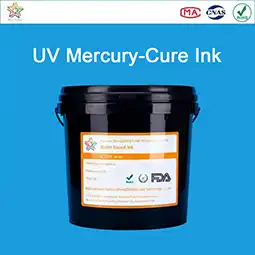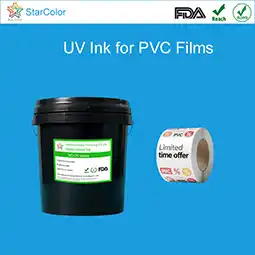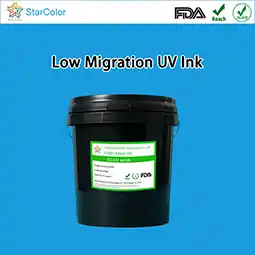What types of plastic film can be used for water-based ink printing
Date: Aug 11 2023 From: Star Color Views:
1.Polyethylene (PE) Films: PE films are widely used for water-based ink printing due to their compatibility with aqueous inks. Low-density polyethylene (LDPE) and high-density polyethylene (HDPE) films are popular choices. They offer good ink adhesion and can be printed with water-based inks effectively.
2.Polypropylene (PP) Films: PP films are another suitable option for water-based ink printing. They are known for their excellent ink adhesion and compatibility with water-based inks. PP films are available in various finishes, such as matte or glossy, providing different aesthetic options for printing applications.
3.Polyethylene Terephthalate (PET) Films: PET films can also be used for water-based ink printing. They offer good ink adhesion and have excellent clarity, making them suitable for applications where transparency is desired. PET films are commonly used for labels, graphics, and packaging.
4.Polyvinyl Chloride (PVC) Films: While PVC films are typically associated with solvent-based inks, some PVC films can also be compatible with water-based inks. It is important to ensure that the PVC film you choose is specifically designed for water-based ink printing to achieve good adhesion and print quality.
5.Biaxially Oriented Polypropylene (BOPP) Films: BOPP films are widely used in the packaging industry and can be suitable for water-based ink printing. They offer excellent ink adhesion, clarity, and dimensional stability. BOPP films are available in various finishes, such as matte, gloss, or metallic, providing versatility for different printing applications.

It's worth noting that specific formulations and variations exist within each type of plastic film, so it's essential to consult with your ink and film suppliers to ensure compatibility and optimal print results for your specific application.
water-based ink printing can be used for food packaging on plastic film. Water-based inks are commonly used in the packaging industry, including for food packaging, due to their safety and environmental advantages compared to solvent-based inks.
Water-based inks are formulated using water as the primary solvent instead of organic solvents. This makes them less harmful and less volatile, reducing the risk of contamination or migration of harmful substances into the packaged food. Water-based inks are generally considered to be food-safe when they meet the regulatory requirements and are used properly.
When printing on plastic films for food packaging, it is crucial to ensure that the ink formulation complies with relevant food contact regulations, such as those set by the Food and Drug Administration (FDA) in the United States or the European Food Safety Authority (EFSA) in the European Union. These regulations dictate the specific materials and additives that can be used in food packaging inks to ensure they are safe for direct contact with food.
It's important to note that not all water-based inks are suitable for food packaging. Therefore, it's recommended to work with ink manufacturers or suppliers who specialize in food-safe inks and can provide documentation to confirm their compliance with applicable regulations. Additionally, proper printing techniques, such as curing or drying processes, should be employed to ensure the ink adheres well to the plastic film and provides the desired visual and functional properties.
Overall, water-based ink printing on plastic film can be a viable and safe option for food packaging, but it's crucial to use inks specifically formulated and approved for this purpose and adhere to relevant food safety regulations.
 RU
RU EN
EN CN
CN















